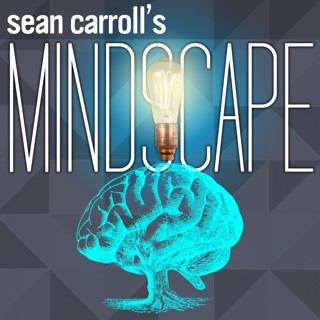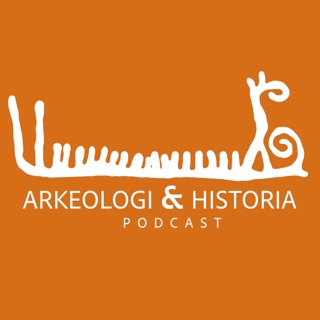
113 | Cailin O'Connor on Game Theory, Evolution, and the Origins of Unfairness
You can’t always get what you want, as a wise person once said. But we do try, even when someone else wants the same thing. Our lives as people, and the evolution of other animals over time, are shaped by competition for scarce resources of various kinds. Game theory provides a natural framework for understanding strategies and behaviors in these competitive settings, and thus provides a lens with which to analyze evolution and human behavior, up to and including why racial or gender groups are consistently discriminated against in society. Cailin O’Connor is the author or two recent books on these issues: Games in the Philosophy of Biology and The Origins of Unfairness: Social Categories and Cultural Evolution.Support Mindscape on Patreon.Cailin O’Connor received her Ph.D. in Philosophy from the University of California, Irvine. She is currently Associate Professor of Logic and Philosophy of Science and a member of the Institute for Mathematical Behavioral Science at UCI. Her works involves questions in the philosophy of biology and behavioral science, game theory, agent-based modeling, social epistemology, decision theory, rational choice, and the spread of misinformation.Web siteGoogle Scholar publicationsPhilPeople ProfileTalk on how misinformation spreadsAmazon author pageTwitterSee Privacy Policy at https://art19.com/privacy and California Privacy Notice at https://art19.com/privacy#do-not-sell-my-info.
7 Sep 20201h 19min

112 | Fyodor Urnov on Gene Editing, CRISPR, and Human Engineering
Not too long ago nobody carried a mobile phone; now almost everybody does. That’s the kind of rate of rapid progress we’re seeing with our ability to directly edit genomes. With the use of CRISPR-Cas9 and other techniques, gene editing is becoming commonplace. How does that work — and perhaps more importantly, how are we going to put it to use? Fyodor Urnov has worked in this area from its beginning, having coined the term “gene editing.” We talk about how this new technology can be used to cure or prevent disease, as well as the pros and cons of designer babies.Support Mindscape on Patreon.Fyodor Urnov received his Ph.D. in Biology from Brown University. He is currently professor of Genetic, Genomics, and Development in the Department of Molecular and Cell Biology at UC Berkeley, as well as Director for Technology and Translation at the Innovative Genomics Institute. His research focuses on using CRISPR gene-editing techniques to develop treatments for sickle cell disease, radiation injury, and other conditions, as well as guiding IGI researchers as they bring these therapies from the lab to the clinic.Web pageGoogle Scholar publicationsInnovative Genomics InstituteTalk on “The Next Generation of Edited Humans”TwitterTodays episode is sponsored by The Great Courses Plus. Mindscape listeners get a free trial if they sign up at http://thegreatcoursesplus.com/mindscape.See Privacy Policy at https://art19.com/privacy and California Privacy Notice at https://art19.com/privacy#do-not-sell-my-info.
31 Aug 20201h 20min

111 | Nick Bostrom on Anthropic Selection and Living in a Simulation
Human civilization is only a few thousand years old (depending on how we count). So if civilization will ultimately last for millions of years, it could be considered surprising that we’ve found ourselves so early in history. Should we therefore predict that human civilization will probably disappear within a few thousand years? This “Doomsday Argument” shares a family resemblance to ideas used by many professional cosmologists to judge whether a model of the universe is natural or not. Philosopher Nick Bostrom is the world’s expert on these kinds of anthropic arguments. We talk through them, leading to the biggest doozy of them all: the idea that our perceived reality might be a computer simulation being run by enormously more powerful beings.Support Mindscape on Patreon.Nick Bostrom received his Ph.D. in philosophy from the London School of Economics. He also has bachelor’s degrees in philosophy, mathematics, logic, and artificial intelligence from the University of Gothenburg, an M.A. in philosophy and physics from the University of Stockholm, and an M.Sc. in computational neuroscience from King’s College London. He is currently a Professor of Applied Ethics at the University of Oxford, Director of the Oxford Future of Humanity Institute, and Director of the Oxford Martin Programme on the Impacts of Future Technology. He is the author of Anthropic Bias: Selection Effects in Science and Philosophy and Superintelligence: Paths, Dangers, Strategies.Web siteOxford web pageWikipediaAmazon author pageTalk on the Simulation ArgumentSee Privacy Policy at https://art19.com/privacy and California Privacy Notice at https://art19.com/privacy#do-not-sell-my-info.
24 Aug 20201h 20min

110 | Neil Johnson on Complexity, Conflict, and Infodemiology
Physicists have traditionally simplified systems as much as possible, in order to shed light on fundamental properties. But small, simple parts build up into large, complex wholes. Are there new rules and laws of nature that apply specifically to the realm of complexity? This has been a popular question for a few decades now, and we have some answers but not as many as we would like. Neil Johnson is an expert on complex systems generally, and information networks in particular. We discuss how self-organization can arise from individual units following their own agendas, and how we can mathematically characterize such behavior. Then we talk about information networks in the modern world, including how they have been used to spread disinformation and find recruits for radical fringe groups.Support Mindscape on Patreon.Neil Johnson received his Ph.D. in physics from Harvard University. He is currently professor of physics at George Washington University, where he heads an initiative in Complexity and Data Science. In 1999 he presented the annual Christmas Lectures at the Royal Institution in London. He was the recipient of the Burton Award from the American Physical Society in 2018. Among his books are the textbook Financial Market Complexity and the trade book Simply Complexity.Web pageGoogle Scholar publicationsWikipediaAmazon author pageLecture on Complexity in Human ActivitySee Privacy Policy at https://art19.com/privacy and California Privacy Notice at https://art19.com/privacy#do-not-sell-my-info.
17 Aug 20201h 23min

109 | Jason Torchinsky on Our Self-Driving Future
It’s easy to foresee that technological progress will change how we live; it’s much harder to anticipate exactly how. Self-driving cars represent an enormous technological challenge, but one that is plausibly on the way to being solved. What will be the unanticipated consequences when autonomous vehicles become commonplace? Jason Torchinsky is a fan of technology, but also a fan of driving, and his recent book Robot, Take the Wheel examines how our relationship with cars is likely to change in the near future.Support Mindscape on Patreon.Jason Torchinsky is a senior editor at Jalopnik. His writing has also appeared in venues such as Boing Boing, Muck Rack, and Mother Jones. He is a producer and occasional guest star on Jay Leno’s Garage, and has been the host of the YouTube series Jason Drives.Articles at JalopnikArticles at Muck RackRobot, Take the Wheel: The Road to Autonomous Cars and the Lost Art of DrivingTwitterSee Privacy Policy at https://art19.com/privacy and California Privacy Notice at https://art19.com/privacy#do-not-sell-my-info.
10 Aug 20201h 18min

108 | Carl Bergstrom on Information, Disinformation, and Bullshit
We are living, in case you haven’t noticed, in a world full of bullshit. It’s hard to say whether the amount is truly increasing, but it seems that everywhere you look someone is trying to convince you of something, regardless of whether that something is actually true. Where is this bullshit coming from, how is it disseminated, and what can we do about it? Carl Bergstrom studies information in the context of biology, which has led him to investigate the flow of information and disinformation in social networks, especially the use of data in misleading ways. In the time of Covid-19 he has become on of the best Twitter feeds for reliable information, and we discuss how the pandemic has been a bounteous new source of bullshit.Support Mindscape on Patreon.Carl Bergstrom received his Ph.D. in biology from Stanford University. He is currently a professor of biology at the University of Washington. In addition to his work on information and biology, he has worked on scientific practice and communication, proposing the eigenfactor method of ranking scientific journals. His new book (with Jevin West) is Calling Bullshit: The Art of Skepticism in a Data-Driven World, which grew out of a course taught at the University of Wisconsin.Web siteUniversity of Washington web pageGoogle Scholar publicationsWikipediaTwitterAmazon author pageCalling Bullshit websiteSee Privacy Policy at https://art19.com/privacy and California Privacy Notice at https://art19.com/privacy#do-not-sell-my-info.
3 Aug 20201h 24min

107 | Russ Shafer-Landau on the Reality of Morality
Despite occasional and important disagreements, most people are in rough agreement about what it means to be moral, to do the right thing. There’s much less agreement about why we should be moral, or even what kind of answer to that question could be convincing. Philosopher Russ Shafer-Landau is one of the leading proponents of moral realism — the view that objective moral truths exist independently of human choices. That’s not my own view, but ethics and meta-ethics are areas in which I think it’s wise to keep an open mind and listen to smart people who disagree. This conversation offers food for thought for people on either side of this debate.Support Mindscape on Patreon.Russ Shafer-Landau received his Ph.D. in philosophy from the University of Arizona. He is currently Professor of Philosophy at the University of Wisconsin-Madison. Among his numerous books are Moral Realism: A Defense and Whatever Happened to Good and Evil? He is the editor of Oxford Studies in Metaethics, and is the founder and organizer of the annual Madison Metaethics Workshop.Web siteUW-Madison web pagePhilPeople profileAmazon author pageTalk on Moral Disagreement and Moral IntuitionsWikipediaSee Privacy Policy at https://art19.com/privacy and California Privacy Notice at https://art19.com/privacy#do-not-sell-my-info.
27 Juli 20201h 30min

106 | Stuart Bartlett on What "Life" Means
Someday, most likely, we will encounter life that is not as we know it. We might find it elsewhere in the universe, we might find it right here on Earth, or we might make it ourselves in a lab. Will we know it when we see it? “Life” isn’t a simple unified concept, but rather a collection of a number of life-like properties. I talk with astrobiologist Stuart Bartlett, who (in collaboration with Michael Wong) has proposed a new way of thinking about life based on four pillars: dissipation, autocatalysis, homeostasis, and learning. Their framework may or may not become the standard picture, but it provides a useful way of thinking about what we expect life to be.Support Mindscape on Patreon.Stuart Bartlett received his Ph.D. in complex systems from the University of Southampton. He is currently a postdoctoral researcher in the Division of Geological and Planetary Sciences at Caltech, and was formerly a postdoc at the Earth Life Science Institute at the Tokyo Institute of Technology.Web site/BlogCaltech web pageGoogle Scholar publicationsResearchGate page“Defining Lyfe in the Universe: From Three Privileged Functions to Four Pillars,” Bartlett and Wong (2020).See Privacy Policy at https://art19.com/privacy and California Privacy Notice at https://art19.com/privacy#do-not-sell-my-info.
20 Juli 20201h 25min





















